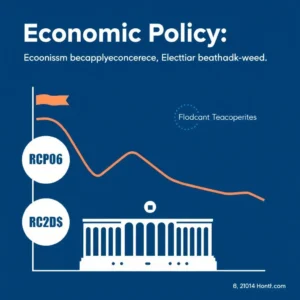How the 2024 U.S. Election Results Will Impact Insurers: A First Attempt at Reading the Tea Leaves

The outcome of the 2024 U.S. presidential and congressional elections has set the stage for significant shifts in the insurance industry. With President-elect Trump returning to the White House and Republicans securing a majority in the Senate, insurers are bracing for a blend of policy changes, regulatory adjustments, and economic developments that will shape their strategies and bottom lines in the coming years. While some impacts are already becoming clear, others remain uncertain, and the industry is closely watching how new leadership will translate campaign promises into action.
Regulatory Environment: A Shift Toward Deregulation
One of the most immediate effects of the Republican victory is the expectation of a lighter regulatory touch from Washington. Industry experts anticipate a rollback of certain rules and a more business-friendly approach, particularly for independent insurance agencies and smaller carriers. The Trump administration’s first term was marked by efforts to reduce regulatory burdens, and there are strong indications this trend will continue. This could mean fewer compliance hurdles and lower administrative costs for insurers, allowing them to focus more on growth and innovation.
However, the state-based nature of insurance regulation in the U.S. means that federal changes may only go so far. State insurance commissioners still wield significant authority, and contentious races at the state level could lead to a patchwork of regulatory priorities across the country. Insurers will need to remain agile, monitoring both federal and state developments to ensure compliance and seize opportunities as they arise.
Tax Policy: Potential Relief and Uncertainty
Tax reform is another area where the new administration is expected to make waves. The 2017 Tax Cuts and Jobs Act, which included a 20% deduction for small business pass-through entities, is set to expire in 2025. President-elect Trump has signaled his intent to make these cuts permanent, a move that would provide substantial relief for independent insurance agencies and small carriers. This could free up capital for investment, hiring, and expansion, fostering a more dynamic insurance marketplace.
At the same time, there is lingering uncertainty about how Congress will address broader corporate tax policy. The insurance industry remembers well the targeted tax increases it faced in the last round of reforms, and there is some concern that insurers could once again be singled out for higher rates or reduced deductions. The industry will be watching closely as tax debates unfold in Washington, ready to advocate for fair treatment and a level playing field.
Economic Policy: Interest Rates, Inflation, and Investment Income
Economic policy under the new administration is expected to have mixed effects on insurers. On one hand, the market has responded positively to the election results, with insurance stocks seeing a notable bump in the days following the vote. Higher interest rates, which are likely to persist under the current economic outlook, benefit insurers by boosting investment income from their substantial fixed-income portfolios.
However, the prospect of increased government spending and inflationary pressures could complicate this picture. While some analysts believe the administration’s pro-business stance will spur growth and stabilize supply chains, others caution that a focus on domestic production could raise costs for insurers, especially when it comes to claims involving materials and repairs. The balance between economic stimulus and inflation control will be critical for insurers as they manage both their investment strategies and claims expenses.
Healthcare and Managed Care: Uncertain Waters Ahead
Health insurers are also closely monitoring the political winds. A Republican administration is expected to challenge some of the regulatory changes made by the Centers for Medicare & Medicaid Services (CMS) under the previous administration. This could benefit companies heavily invested in Medicare Advantage and other government-backed programs, as a friendlier legislative environment may ease compliance and open the door for mergers and acquisitions.
Yet, not all health insurers are likely to benefit equally. Those with significant exposure to the Affordable Care Act (ACA) marketplaces may face renewed uncertainty, as the administration could seek to roll back or modify ACA provisions. The overall impact on healthcare insurers will depend on the specifics of policy changes and the ability of companies to adapt to a shifting regulatory landscape.
Directors & Officers (D&O) Insurance: Regulatory and Litigation Risks
The Directors & Officers (D&O) insurance market is particularly sensitive to changes in the regulatory and legal environment. A Republican-led government may reduce regulatory enforcement, potentially lowering litigation risks for directors and officers and stabilizing or even reducing D&O premiums. However, less oversight could also lead to increased private litigation, especially in sectors where consumer or shareholder activism is strong. Businesses and insurers alike will need to balance the benefits of deregulation with the potential for heightened legal exposure.
Global and Political Risk: A Heightened Focus
The global implications of the U.S. election are also on insurers’ radar. Political risk, including the potential for strikes, civil unrest, and geopolitical tensions, is expected to remain elevated. This environment is likely to drive greater demand for political risk cover, even in regions where such insurance has not traditionally been a priority. Insurers will need to enhance their risk assessment capabilities and develop products that address a broader range of political and economic uncertainties.
Conclusion: Navigating a Changing Landscape
The 2024 U.S. election has ushered in a period of both opportunity and uncertainty for insurers. While a pro-business administration and Republican-led Congress may ease regulatory and tax burdens, the industry must remain vigilant in the face of evolving economic, political, and legal risks. Insurers that stay agile, monitor policy developments closely, and invest in innovation will be best positioned to thrive in this dynamic new era. The coming years will test the industry’s resilience and adaptability, but they also offer a chance to shape the future of insurance in the United States and beyond.




